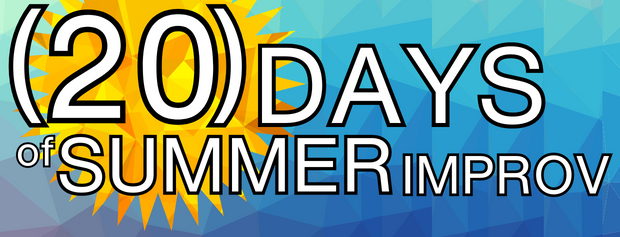I’m a satirist. That’s how I make my living--I’m the Program Designer and instructor of the online satire courses at The Second City Training Center, along with being a freelance writer. I literally spend hours a day talking to people about their satirical targets, contemplating points of view and wrangling the emotional impact behind humor pieces.
But I have nothing eloquent or cutting to say right now.
Right now, I am sad. There’s a fog around my brain. I’ve spent eighty percent of the last two days reading news story after news story, liking status updates and retweeting both people I know and perfect strangers. I’ve let other people put my feelings into words and speak for me. But I can feel my satire muscles flexing, wanting to get back into the game. Soon, I’ll be there.
Based off what I’m feeling right now, here is my advice for sad satire writers over the next days, weeks, months…years.
Start small.
Do you have one little observation that feels true to you? Do you have the tiny kernel of a comedic premise that you can expand upon? (Nothing Harambe-related, please. The rumor that 11,000 Americans wrote in a dead gorilla for president is NOT true.) Write it down. You can even do it old school, in a notebook. Just shape a thought.
Be emotionally honest.
While satire is often called the comedy of outrage, you can certainly tap into the other colors of the feelings rainbow. If you feel like you can't yet muster burning outrage over the events that have unfolded over the last three days, go ahead and pick a tone of fear or sadness. Remember: the whole cast of “Inside Out” is inside your head to help you out.
Don’t go with the first target to enter your head.
Do you have your “minority voters didn’t turn out” bullseye dialed up and ready to go? Are you eating, sleeping and breathing the “white male rage narrative?” Don’t start writing a piece of satire entirely from your assumptions. 53% of white women voted for Trump. People with college degrees did surprising shit. Our Lord and Savior--Nate Silver of 538--was not right (GASP). Examine your scapegoat reflex.
Take a hard look at your own biases.
If you were convinced that every piece of pre-election media you had delivered to your silo was right and this was going to be a rout, why? If you knew you were going to vote for Trump--despite his racist and sexist beliefs--but never admitted it to anyone outside the voting booth, why? Take a hard look at both what you believe and what in this society allows you to hold those beliefs without challenge. Your biases inform your writing, and examining them can be the basis of your satirical views.
Fucking go for it.
Over 43% of this country didn’t exercise their right to vote. They chose to do nothing. Don’t make that choice. The fear of sitting down and writing something so personal can be paralyzing, especially when it comes to such a fraught, emotional and contentious topic. You can take Bill Cosby and Brock Turner to the mat all day long, confident that MOST people are going to agree with you, but when a quarter of the country doesn’t? And a full half who-fucking-knows? You’re not going to make everyone happy.
Rewrite.
After you let it rip, let it chill for sec. Make some revisions before you throw it up on the internet. Your future self who one day will be trying to get a job will thank you.
Think about what you want the next step to be.
One major goal of satire has always been to affect change. Jonathan Swift wanted to alter British attitudes and policies toward the Irish poor when he wrote “A Modest Proposal.” John Oliver provides the tools for his viewers to take concrete action on issues ranging from church tax exemption laws to net neutrality on “Last Week Tonight.” Samantha Bee practically burns society to the ground every Monday night on “Full Frontal” as she points out our sexism, racism and every other -ism under the sun.
Ask yourself: what do you want to happen now, in the wake of this election? How can you embody that call to action in a comedic premise and a satirical POV? Write from there.
It’s okay to take a break.
Sometimes, satire just won’t come. But words and art still will. Write the silliest thing that can possibly come out of your head. Heave yourself out of a mental dark zone by exercising your creativity and finding joy in your own ideas. You’ll feel more like yourself, and maybe the paralyzing fog will lift for a moment.
Don’t worry. There's so, so much more satire to come.
_________________________________________________________________
Caitlin Kunkel (@KunkelTron) is a comedy writer, director and producer based in Brooklyn, NY.

 Shows & Tickets
Shows & Tickets  Chicago Venue Info
Chicago Venue Info  Classes & Education
Classes & Education  Second City Works
Second City Works  Second City Network
Second City Network  Our Legacy
Our Legacy 













